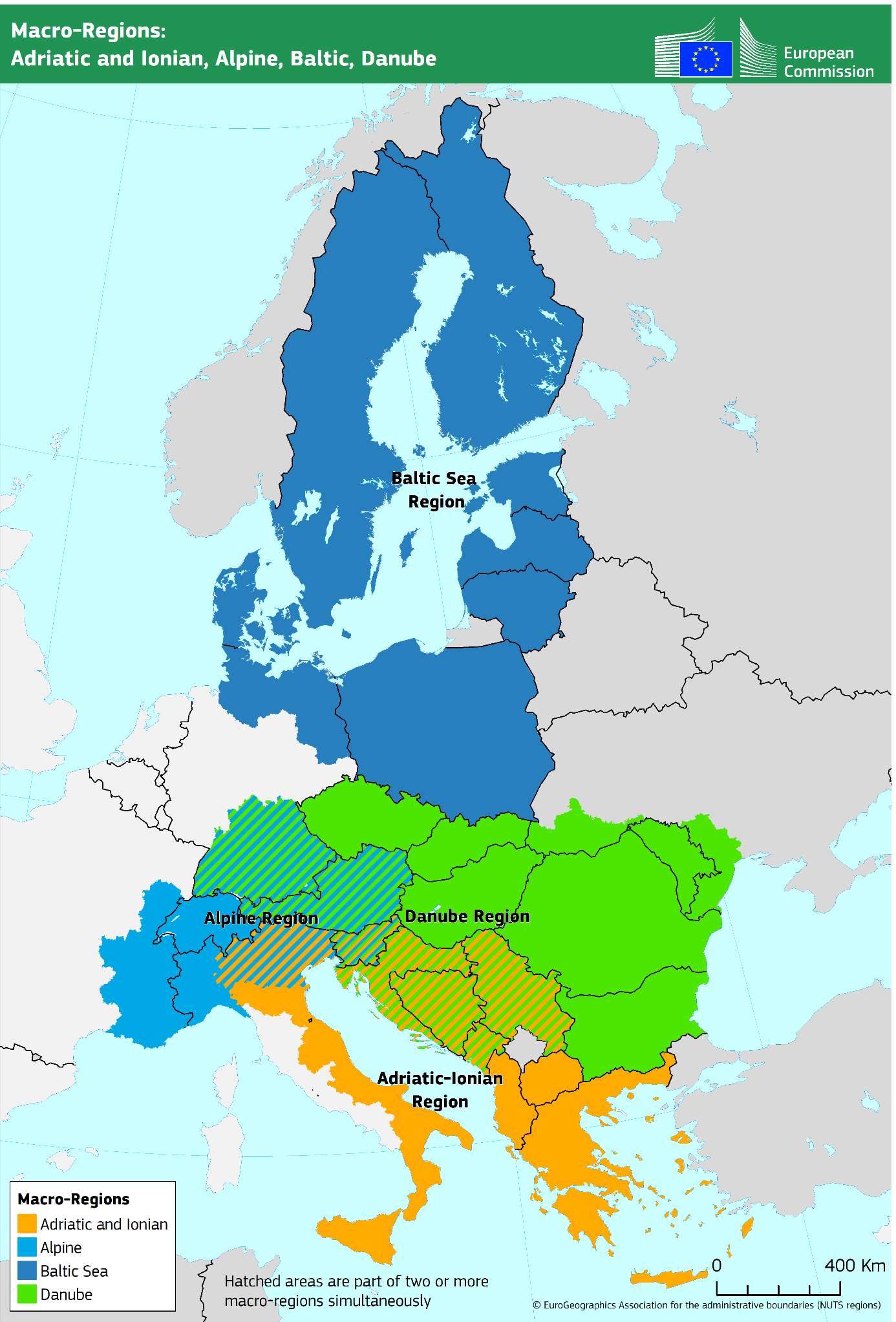|
Today, the European Commission adopted the 5th biennial report on the implementation of the EU macro-regional strategies. This report covers progress made from mid-2022 to mid-2024 by the EU Strategy for the Baltic Sea Region, the Danube Region, the Adriatic and Ionian Region, and the Alpine Region. The four existing Strategies encompass the territory of 19 EU Member States and 10 non-EU countries inhabited by approximately 360 million people. The report underscores the role of macro-regional strategies in fostering cooperation across borders to address shared challenges from demographic change and green transition to digital transformation and preparedness. In a context shaped by geopolitical instability—particularly Russia’s ongoing war of aggression against Ukraine—the report also highlights how macro-regional strategies support EU enlargement and reinforce resilience at national and regional levels. Key highlights from the 5th report include:
The report stresses the need for macro-regional strategies to remain dynamic, inclusive, and better aligned with broader EU objectives. It calls for the involvement of regional and local authorities, civil society, youth, academia, and business in shaping and delivering future actions. Accompanied by a detailed Commission Staff Working Document, the Report offers comprehensive insights into the progress and challenges of each strategy, and lays the groundwork for future improvements in monitoring, communication, and funding alignment.
EU Strategy for the Danube Region
|





